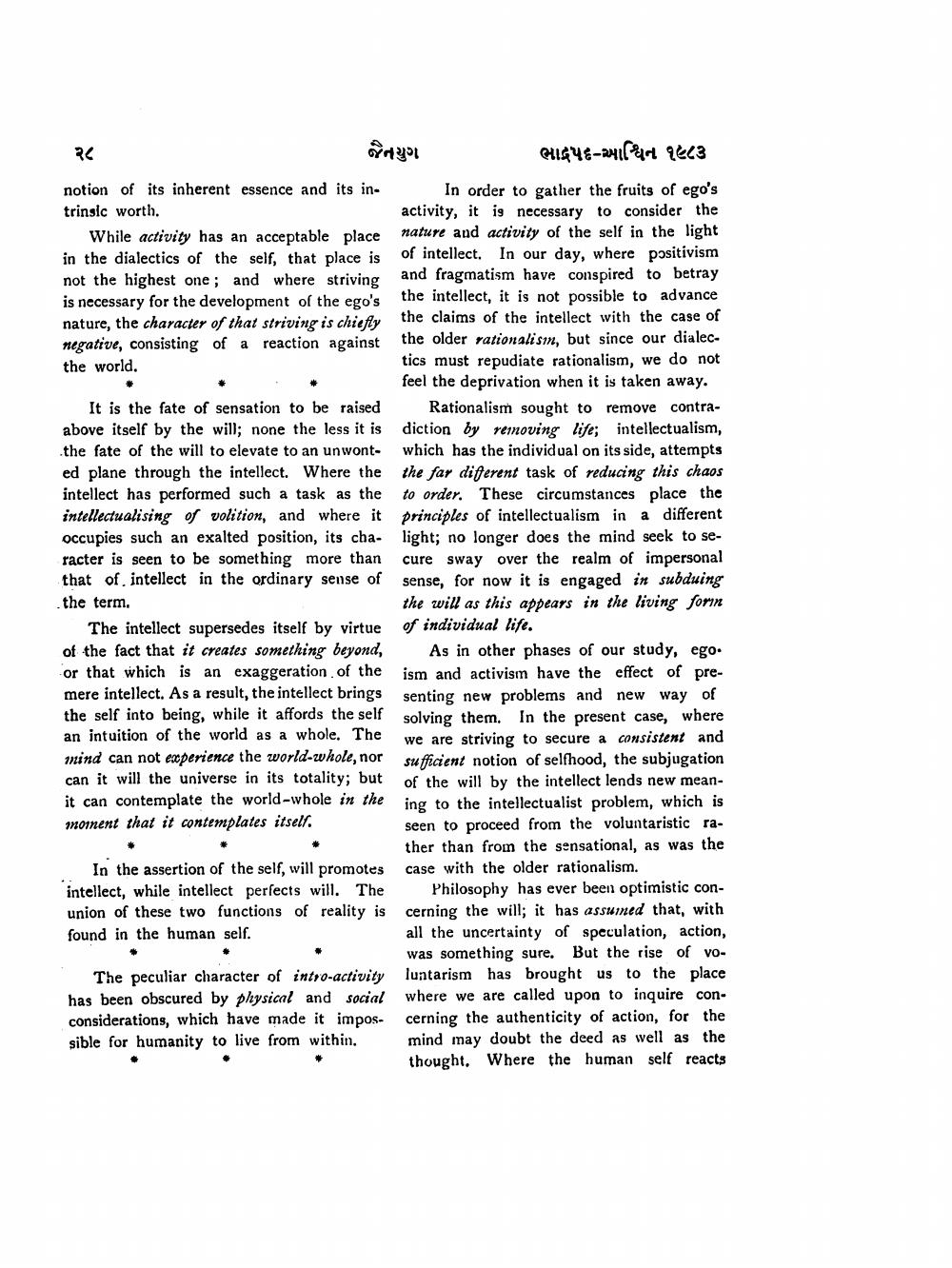________________
24
જૈનયુગ
ભાદ્રપદ-આશ્વિન ૧૯૮૩
notion of its inherent essence and its in- trinsic worth.
While activity has an acceptable place in the dialectics of the self, that place is not the highest one; and where striving is necessary for the development of the ego's nature, the character of that striving is chiefly negative, consisting of a reaction against the world.
It is the fate of sensation to be raised above itself by the will; none the less it is the fate of the will to elevate to an unwont ed plane through the intellect. Where the intellect has performed such a task as the intellectualising of volition, and where it occupies such an exalted position, its cha- racter is seen to be something more than that of intellect in the ordinary sense of the term.
The intellect supersedes itself by virtue of the fact that it creates something beyond, or that which is an exaggeration of the mere intellect. As a result, the intellect brings the self into being, while it affords the self an intuition of the world as a whole. The wind can not experience the world-whole, nor can it will the universe in its totality; but it can contemplate the world-whole in the
-whole in the moment that it contemplates itself.
In order to gather the fruits of ego's activity, it is necessary to consider the nature and activity of the self in the light of intellect. In our day, where positivism and fragmatism have conspired to betray the intellect, it is not possible to advance the claims of the intellect with the case of the older rationalism, but since our dialectics must repudiate rationalism, we do not feel the deprivation when it is taken away.
Rationalism sought to remove contradiction by removing life; intellectualism, which has the individual on its side, attempts the far different task of reducing this chaos to order. These circumstances place the principles of intellectualism in a different light; no longer does the mind seek to secure sway over the realm of impersonal sense, for now it is engaged in subduing the will as this appears in the living forın of individual life.
As in other phases of our study, ego. ism and activism have the effect of presenting new problems and new way of solving them. In the present case, where we are striving to secure a consistent and sufficient notion of selfhood, the subjugation of the will by the intellect lends new meaning to the intellectualist problem, which is ing to seen to proceed from the voluntaristic rather than from the sensational, as was the case with the older rationalism.
Philosophy has ever been optimistic concerning the will; it has assumed that, with all the uncertainty of speculation, action, was something sure. But the rise of voluntarism has brought us to the place where we are called upon to inquire concerning the authenticity of action, for the mind may doubt the deed as well as the thought. Where the human self reacts
In the assertion of the self, will promotes intellect, while intellect perfects will. The union of these two functions of reality is found in the human self.
The peculiar character of intro-activity has been obscured by physical and social considerations, which have made it impos- sible for humanity to live from within.




